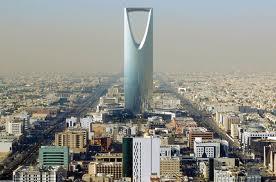
Global retailers looking to make early international moves, particularly at the luxury end found Saudi Arabia, Qatar and UAE offering greater opportunities, according to the RIPE Index.
The first annual Retail International Programme Expansion (RIPE) Index, published recently by global built asset consultancy EC Harris. Saudi Arabia, Qatar and the UAE, which were ranked 8th, 11th and 15th, respectively, scored well for the quality of their transport infrastructure, capability of their construction supply chain and their supporting legal framework.
Luxury brands such as Bloomingdales are succeeding in the Middle East with high quality retail space on offer and an overall willingness to do business in the region. Saudi Arabia topped the list for MENA region. Qatar took the second position in the region. The overall ratings for all the MENA countries were ‘high’ but the only watch-out being project delivery issues.
“What we find is that even the most opaque local bureaucracy can be overcome if the investment into the relationship is made by native speakers with the patience to understand the people, the culture and the procedures,” EC Harris said.
It was the presence of ‘strong’ trading partners and franchise operators such as Majid Al Futtaim, Al Tayer, Landmark Group, Alshaya and the Chaloub Group, meant that market-testing moves can be made with relatively low resource and capital requirements.
Luxury retailers are profiting from the ease of being able to deliver in this market, EC Harris said. It cited Bloomingdales, as an early mover, whose first store outside of the US opened two years ago, anchoring the Dubai Mall. The 161,000 sqft, three-level development was undertaken in partnership with Al Tayer and is trading well. Qatar’s World Cup success presents interesting brand showcasing opportunities, the report said, adding it was anticipated that several major malls will come to market in the lead up to 2022.
“International expansion presents great opportunities for retailers experiencing low growth in their domestic markets,” said John Williams, regional leader, Middle East at EC Harris. “Consumer appetite for luxury international brands is strong across the Middle East, and our report suggests that retailers are able to set up much more easily here than in markets such as China or India,” he added.
“Successful international expansion is about balancing the desirable with the feasible. Success is down to making a careful and committed choice, maintaining realistic expectations, and making plenty of adaptations along the way,” he said.
The Ripe index ranks 40 important consumer markets based on five success factors for large-scale rollouts, drawing out the nuances property leaders should consider as their own organisation’s expansion plans evolve.
“International expansion is the new battleground for retailers experiencing low growth in their domestic markets. Consumer appetite for Western brands in Asia makes these markets attractive, but not always easy to enter. Successful international expansion is about balancing the desirable with the doable. Much like a marriage, success is down to making a careful and committed choice, maintaining realistic expectations, and making plenty of adaptations along the way,” said Colin Turner, head of retail at EC Harris.
In August, Jones Lang LaSalle’s third quarter global market perspective, said the slowing global economic environment had resulted in European retailers seeking to increase their presence in the Dubai market in recent months, which was fuelling rental growth in popular centres.